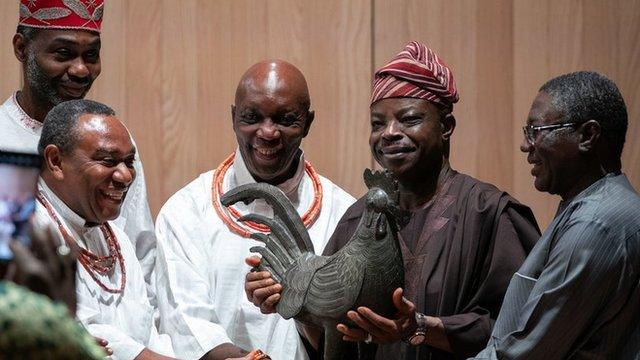Cambridge college to return Aboriginal spears to Australia
- Published
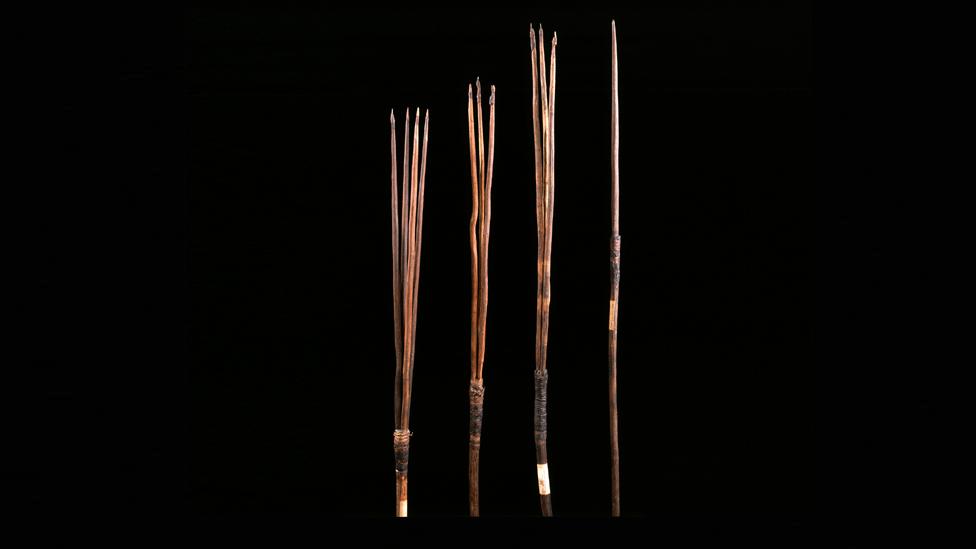
Trinity College, Cambridge, will formally return the spears to Australia
Four Aboriginal spears that were brought to England 250 years ago are to be formally handed back to Australia.
The weapons were given to Trinity College, Cambridge, soon after Capt James Cook returned to England on the HMB Endeavour in 1771.
They are regarded by indigenous Gweagal men in the Kamay Botany Bay region as "national treasures".
Dame Sally Davies, master of Trinity College, said it was the "right decision" to return the spears.
The four spears are the last surviving ones from a haul of 40, taken from a local camp when the British expedition arrived in Australia in 1770, at modern-day Sydney.
They were presented to the Cambridge University college by Lord Sandwich of the Admiralty on Capt Cook's return and have been part of the college's collection since 1771.
The spears were then transferred to the university's Museum of Archaeology and Anthropology (MAA) in 1914.
Campaigners have long called for their repatriation to Australia, where Gweagal people still use similar multi-pronged fishing spears.
Trinity College agreed to permanently return the spears to the La Perouse Aboriginal community, external after a formal repatriation request was made in December.
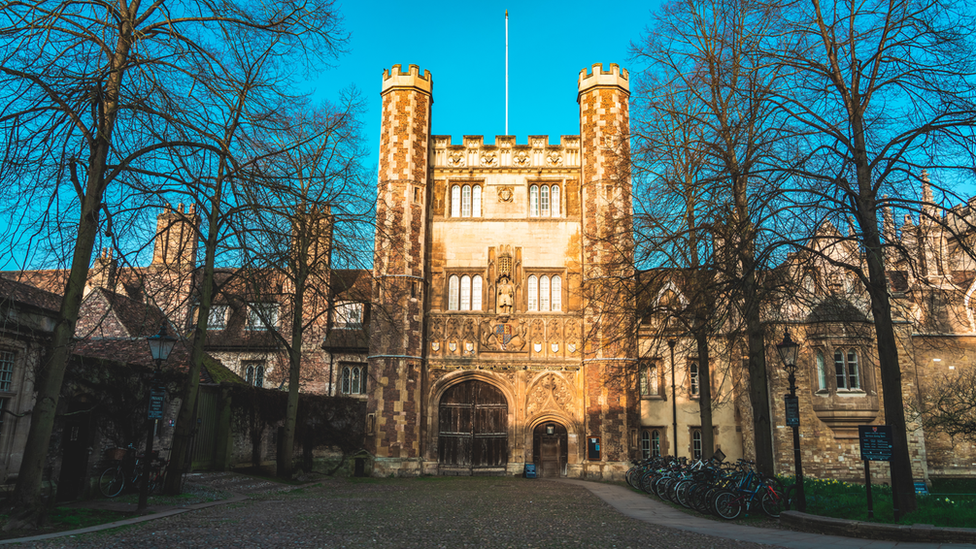
Trinity College is now seeking approval for the transfer of legal title before the spears are repatriated
The college has sought approval for the transfer of legal title from the Charity Commission, and it was hoped the spears would be returned within months.
La Perouse Local Aboriginal Land Council chairperson Noeleen Timbery welcomed the move, describing the spears as "enormously significant artefacts".
"They are an important connection to our past, our traditions and cultural practices, and to our ancestors," she said.
Prof Nicholas Thomas, director of the MAA, said the spears were "exceptionally significant", adding: "They are the first artefacts collected by any European from any part of Australia, that remain extant and documented.
"They reflect the beginnings of a history of misunderstanding and conflict.
"Their significance will be powerfully enhanced through return to the country."
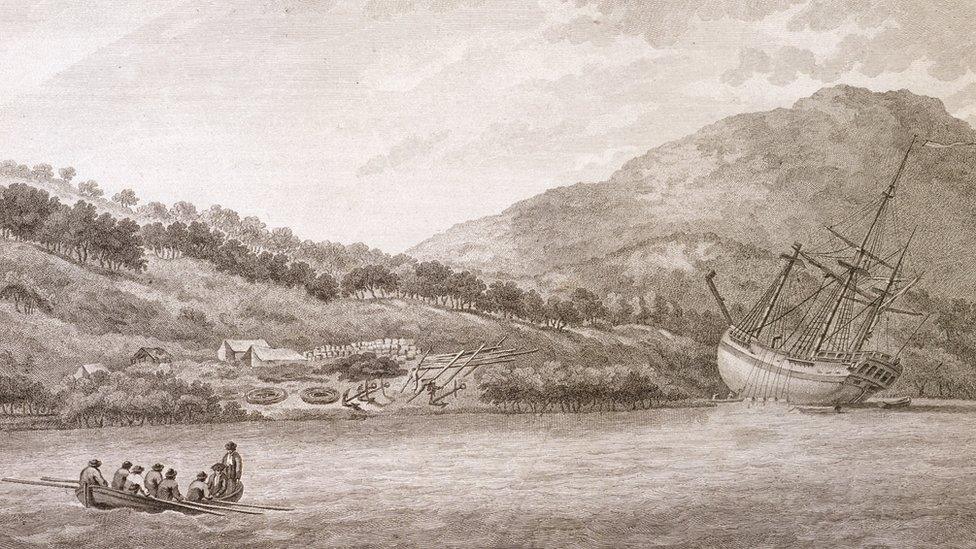
HMB Endeavour [His Majesty's Bark - a type of vessel] sailed for several years around the South Pacific before famously landing in eastern Australia in 1770
There are plans for the artefacts to be displayed at a new visitor centre being built at Kurnell, Botany Bay.
Some of the spears were returned temporarily to Australia in 2015 - and again in 2020 - and displayed by the National Museum of Australia in Canberra, as part of two exhibitions exploring frontier encounters.
Last year, Cambridge University agreed to return 116 artefacts to their original countries, including Benin bronzes to Nigeria.
The items, mainly made of brass but also some ivory and wooden objects, were taken by British forces during the sacking of Benin City in 1897.

Find BBC News: East of England on Facebook, external, Instagram, external and Twitter, external. If you have a story suggestion email eastofenglandnews@bbc.co.uk, external
- Published14 December 2022
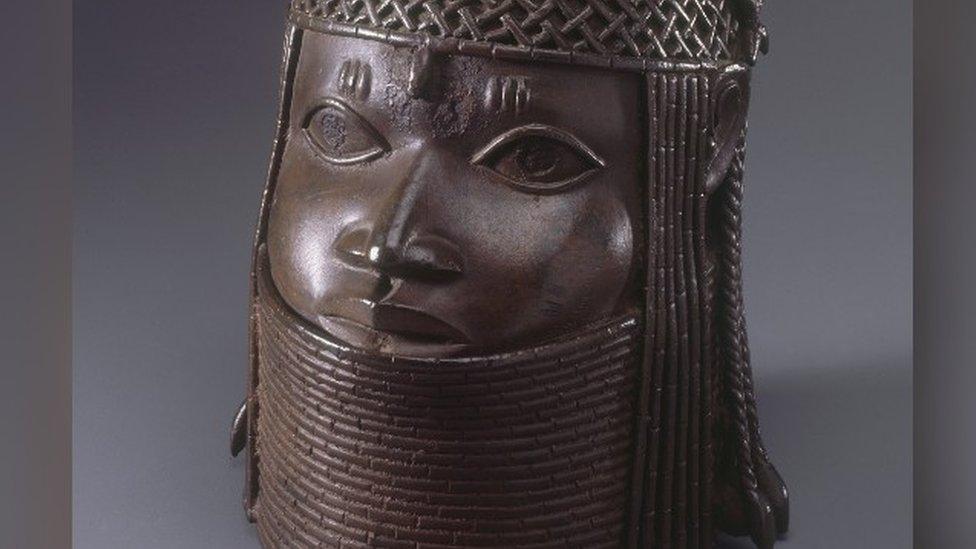
- Published28 June 2022
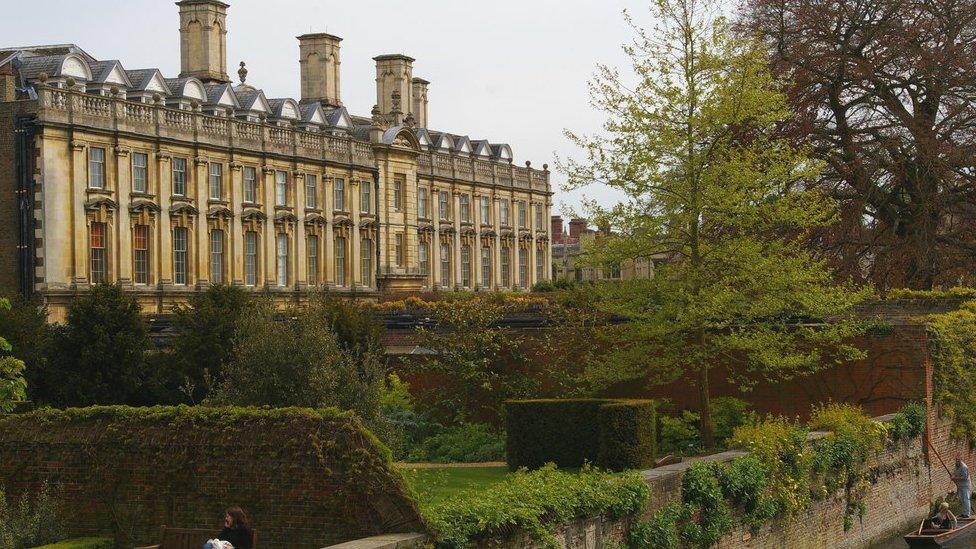
- Published3 February 2022
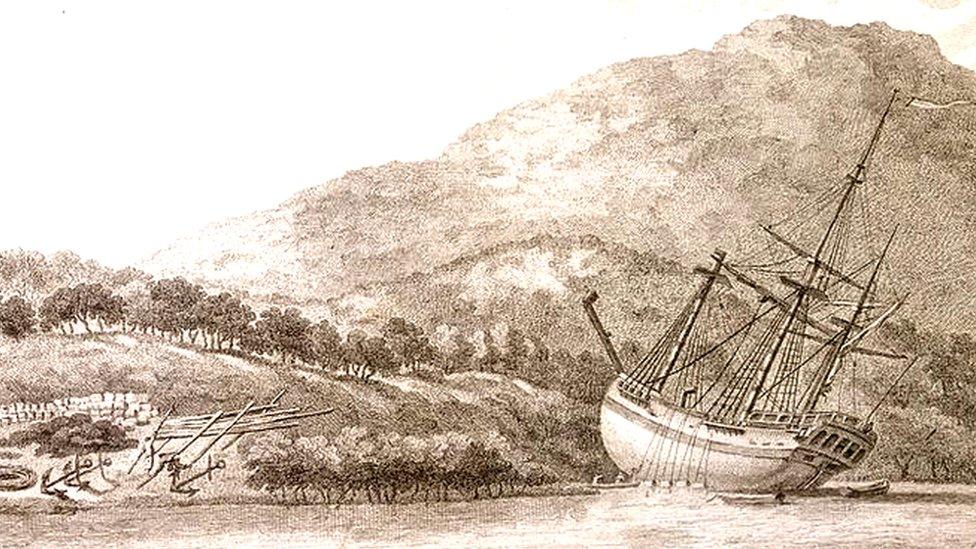
- Published27 October 2021
